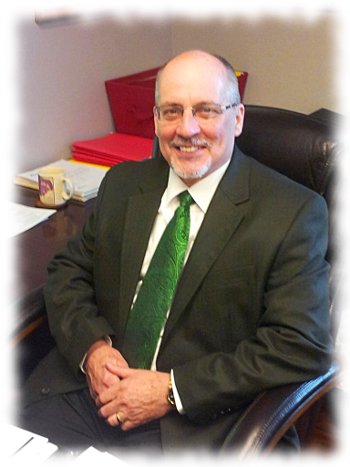“There Is A Fountain Filled with Blood”
by Pastor Edwin Lehmann on May 19, 2017 in Luke 23:39-43
Midweek Lent 6 April 5&6, 2017
Text: Luke 23:39-43 Hymns of the Passion 17:2006
Theme: “There Is A Fountain Filled with Blood”
Our final Hymn of the Passion was written by an Englishman of the 1700s who lived much of his life under a dark, dark cloud. William Cowper (“Kooper”) suffered great bouts of depression throughout his life. Pay attention to the words of our first two hymns this evening and you will catch a hint of that. But also note the great gospel promises and expressions of faith and hope that each hymn portrays. He wrote many such hymns for his own spiritual strengthening, believing that despite his mental afflictions he still rested in God’s hands.
The first hymn we sing may seem at first unsuitable for the Lenten season, but Cowper based this hymn on words Jesus spoke during His passion. After Jesus began to wash His disciple’s feet during the Last Supper, Simon Peter questioned Jesus as to what He was doing. Jesus’ reply served as the basis for the thoughts in our hymn. He said, “You do not realize now what I am doing, but later you will understand.” Appropriate words to consider for a Christian enduring difficult times and wondering, “Why?” The hymn was first titled as “Light out of Darkness.” Think of Jesus’ words as we sing the hymn.
William Cowper was born in 1731 and died in 1800. Throughout his life, especially in childhood he was physically frail and emotionally sensitive. Contributing to his instability was the death of his mother when he was just 6 years old. Near the end of his life he said that there had never been a day when he had not mourned his mother’s death.
He studied law in school but the prospect of appearing for his final examination before the bar so frightened him that it caused a mental breakdown and an attempt at suicide. Later he was placed for 18 months in what was known as an insane asylum at the time for the treatment of severe “melancholia.”
One day during this detention he read from the Scriptures Paul’s words in Romans 3:25 where Jesus Christ is “set forth as a propitiation (an offering of atonement) through faith in His blood. He did this to demonstrate His justice, because in His forbearance He had left the sins committed beforehand unpunished.” With those words Cowper began to realize a sense of personal forgiveness for his sins of the past at “the fountain that was filled with blood” for him – Christ.
Later in life Cowper combined with John Newton (Amazing Grace)
to produce one of the first great hymnal productions in the English speaking world of 349 hymns, of which Cowper wrote 67 with John Newton writing the remainder.
It is remarkable to note that some of his most meaningful hymns were written after times of great darkness and deep depression. Despite many physical and emotional frailties, God endowed him with great literary talents to enrich the lives of Christians everywhere who experience the darkness that sin can bring upon souls and minds.
This evening we base our thoughts about this hymn and Jesus’ atoning work on the cross from Luke 23:39-43:
Years ago a story was published mirroring in modern times an account similar to our text. A notorious robber in NY was arrested and incarcerated many times. But prison’s discipline made no impression upon him. He kept returning to his nefarious ways. In prison again a pastor talked and prayed with him, but the stubborn heart remained untouched. The pastor began singing the first stanza of this hymn: There is fountain filled with blood Drawn from Immanuel’s veins – to no effect. He continued with the second stanza: The dying thief rejoiced to see That fountain in his day, And there have I, as vile as he, Washed all my sins away. The prisoner was moved by the parallel account to his own life. The gospel became his door to hope, and the life that had for so long given itself to vice and crime was converted to Christ and service in His kingdom. (Concordia Pulpit XIV, p.129)
In the O.T. the prophet Zechariah had prophesied (13:1) of a fountain that God would open for uncleanness and sin to wash it away. He doesn’t say what would flow from that fountain, but he does tell us for whom the fountain flows – the people who look to God, no matter if they are upright citizens, robbers in prison, or criminals on the cross. There is a fountain filled with blood Drawn from Immanuel’s veins, And sinners plunged beneath that flood Lose all their guilty stains.
Here think of what the Apostle John saw as he stood at the foot of Jesus’ cross when Jesus gave up His life. A soldier cast a spear into Jesus’ side to assure of His death and out flowed blood and water. In speaking of that blood in his first epistle, John writes that the blood of Jesus Christ cleanses us from all sin.
The dying thief on the cross rejoiced to see it. There were two such criminals led with Jesus to execution. One was crucified on His right, the other on His left. At first both joined the crowd in mocking Jesus. But soon the one grew silent.
He heard the Savior’s words of forgiving love and appeals to His Father above. The Holy Spirit began to work a change in him. He saw the Messiah prophesied of old, the One who would soon pass through death into His heavenly Kingdom.
In himself he saw a vile criminal, guilty of terrible sins against God and humanity, fully deserving of the punishment he was receiving for his crimes. But in Jesus he saw the righteousness of God. With grief stricken heart he turned in sorrowful repentance to Jesus and prayed, “Jesus, remember me when You come into Your Kingdom.”
One merciful thought on the part of the Savior – that would be enough! Just one forgiving thought. In faith he laid that dying request at Jesus’ feet. And in that faith he received even more than he asked. The Savior replied, “Today you will be with me in paradise.” Beneath the cross on Calvary’s hill there is mercy and pardon for a dying thief. And there have I, as vile as he, Washed all my sins away.
What comfort to know that this Fountain of Forgiveness flows for all! What assurance to realize that the same blood which availed for that criminal, avails for me, for the blood of Jesus Christ cleanses from all sin – every one of them! And all who receive it in faith enjoy its cleansing power. Every one!
In the third stanza Cowper in gratitude addresses Christ for all people, Dear dying Lamb, Thy precious blood Shall never lose its power, Till all the ransomed Church of God Be saved to sin no more.
Saved to sin no more – that only takes place in Paradise where sin and its consequences shall never touch us again. Surely a marvelous power, surely an uplifting promise that can take a person out of the doldrums and dark depression that sin causes us in this life and lifts the soul to rejoice in the glory of God that awaits.
What perfectly beautiful lines for all who believe. Picture for a moment the power of Christ’s redeeming love in William Cowper’s own case. It cheered the heart of this melancholy man to his 69th year on earth, when he passed this life. And when he walked through the valley of the shadow of death, there was no evil to fear, for Christ was with him, allowing His rod and staff of protection to comfort him. And now William Cowper along with all others who have passed this life drawing from the fountain that flows from Immanuel’s side, sing in a far higher way the words which close our hymn and our Lenten season:
When this poor lisping, stammering tongue Lies silent in the grave
Then in a nobler, sweeter song I’ll sing Thy power to save.
God grant it in our lives of faith for Jesus’ sake. Amen.

